Add Your Heading Text Here

11 - 12 March 2026 | Rydges, Auckland & Virtual
Exploring the evolving landscape of industrial and employment relations through critical discussions and legislative updates.
Industrial & Employment Relations Summit
Attend virtually or in-person
The 40th Annual Industrial & Employment Relations (IER) Summit is where industry leaders, and legal experts will converge to explore the latest developments in employment relations in New Zealand. This two-day event features insightful discussions, case law analysis, and practical workshops on critical topics such as employment law updates, workplace safety, employee rights, and the evolving role of technology in the workplace. Don’t miss this opportunity to gain valuable insights and network with fellow professionals in the field.
Hottest topics at IER

Contractor vs Employee
Understand the gateway test for businesses to utilise when deciding whether a person is an employee or a contractor.

Updating the Holidays Act 2003
Round up what is known about the pending changes and their impact on HR, IR and Payroll functions.

Managing the investigation process and serious misconduct
Develop a robust procedure

Preparing for mediation
Outline expectations, evaluations and effective communication

Restructuring and redeployments
Delve into the baseline for a lawful restructuring and legal positions and practicalities for redeployment

Social media boundaries
Navigate professional conduct and employer expectations
Take your knowledge to the next level – Practical application
3 separately bookable workshops

Conducting successful investigations
12 March 2025 | 9.00 AM – 12.30 PM

Navigating disciplinary actions: Best practices, key considerations and your obligations under the Employment Relations Act 2020
12 March 2025 | 1.00 PM – 4.30 PM

AI implications in an ER environment
12 March 2025 | 9.00 AM – 4.00 PM
Why should you attend?
- Understand the current legislative landscape on hot topics including workplace health and safety, contractor arrangements, restructures and redeployments, and more
- Uncover the developments from the latest case law and what this means for employee relations in Aotearoa New Zealand
- Develop and deepen your understanding of the future and current industrial and employment landscape
- Network with HR and ER professionals and practitioners, build connections and foster ideas
Who should attend?
- Chief People Officers
- HR Partners
- HR Managers
- Industrial and Employment Relations Leads
- Employee Relations Managers
- ER Specialists
+ anyone who is interested in understanding the scope of the legislative landscape and how it relates to New Zealand business
KEY SPEAKERS FOR 2026
Our 2026 key lineup brings together thought leaders, counsel and experts in HR. Check out more today.

Alastair Espie
Duncan Cotterill

Emma Peterson
Partner
Russell McVeagh

Gillian Service
Featured workshop: Holidays Act reform
A practical session explaining the Holidays Act reforms, how leave calculations change, and how to prepare systems and teams for compliance.

Venue
The location and how you can get there
Address
Rydges Auckland
59 Federal Street,
Auckland Central,
Auckland 1010.
Agenda
Agenda to be announced
8:45 | Registration and coffee |
9:00 | Welcome remarks from the Chair Hannah King, Partner, Kiely Thompson Caisley |
9:10 | Employment law reforms : What’s in force and what’s ahead
Hamish Kynaston, Partner, Buddle Findlay |
9:50 | Employment Court Update: Key decisions and emerging trends
Michael Witt, Partner, McVeagh Fleming |
10:30 | Morning break |
11:00 | The future of the Holidays Act 2003: The reforms, their impact on NZ businesses and ensuring you’re future proofing your employment agreements now
Gillian Service, Partner | Kaiurungi, MinterEllisonRuddWatts |
11:30 | Q&A on the Holidays Act 2003 Amendments |
11:40 | Health and Safety at Work Act 2015 - Examining updates to health and safety legislation and regulatory frameworks
Sanja Marin, Senior Associate, Duncan Cotterill |
12:20 | Psychosocial safety in the workplace
Steph Dyhrberg, Barrister, Steph Dyhrberg Barrister |
12:50 | Lunch break |
13:50 | Workplace bullying and harassment: Legal duties, risks, and effective resolution strategies
Maria Dew KC, Barrister, Britomart Chambers |
14:30 | A practical roadmap for fair and effective investigations
Fiona McMillan, Partner, Lane Neave |
15:00 | Performance management, trial periods, and unjustified dismissals: Legal tests and practical pitfalls
Jessie Lapthrone, Partner, Duncan Cotterill |
15:40 | Afternoon break |
16:00 | Remedies in Personal Grievance cases: Where are we headed?
Emma Peterson, Partner, Russell McVeagh |
16:30 | Panel Discussion: Employment Relations at Crossroads: The economic and societal forces reshaping workplaces
Elizabeth Coats, Partner, Bell Gully Carl Blake,Senior Associate, DLA Piper Kerri Nuku,Kaiwhakahaere, New Zealand Nurses Organisation Daniel Erickson, Partner, Tompkins Wake |
17:10 | Summary remarks from the Chair & networking drinks Hannah King, Partner, Kiely Thompson Caisley |
17:20 | IER networking function |
8:45 | Registration and coffee |
9:00 | Welcome back remarks from the Chair Hannah King, Partner, Kiely Thompson Caisley |
9:10 | Industrial action on the rise: The new era of union influence and collective bargaining
Alastair Espie, Partner, Duncan Cotterill |
9:50 | Case law insights: Redundancy, restructuring, and redeployment obligations
India Townsend, Senior Associate, Simpson Grierson |
10:30 | Morning break |
11:00 | Mixed motive dismissals: Practical approaches for legally complex dismissal cases
Rosemary Wooders, Partner, Bell Gully |
11:30 | Managing highly paid employees
Blair Scotland, Partner, Dundas Street |
12:00 | Discrimination and belief in the workplace: Legal boundaries and emerging challenges
Jennifer Mills, Director- Head of Practice, Jennifer Mills & Associates |
12:30 | Medical incapacity and return to work programmes
Melissa Johnston, Partner, BE Employment Law |
13:00 | Lunch break |
14:00 | Immigration Law update: What the changes to the Accredited Employer Work Visa and Specific Purpose Work Visa systems mean for employment, employers and migrant workers
Arran Hunt, Partner, McVeagh Fleming Lawyers |
14:30 | Employee fraud and misconduct: Employer remedies and freezing orders
James Warren, Partner, Dentons |
15:00 | Afternoon break |
15:20 | Quick-fire: Television New Zealand v Talley's Group
Kylie Dunn, Partner, Smith Dunn |
15:40 | Generative AI in HR and employment Law: Risks, opportunities, and the problem of “AI hallucinations” in claims
Gracy Kim, Associate, Jennifer Mills & Associates |
16:10 | Summary remarks from the Chair & end of Summit Hannah King, Partner, Kiely Thompson Caisley |
Speakers
Speakers to be announced

Daniel Erickson
Read bio

James Warren
Read bio

Carl Blake
Read bio

Emma Peterson
Read bio

Jeremy Ansell
Read bio

Hannah King
Read bio

Maria Dew KC
Read bio

India Townsend
Read bio

Gracy Kim
Read bio

Blair Scotland
Read bio

Hamish Kynaston
Read bio

Steph Dyhrberg
Read bio

Elizabeth Coats
Read bio

Jennifer Mills
Read bio

Jessie Lapthrone
Read bio

Rosemary Wooders
Read bio

Gillian Service
Read bio

Kerri Nuku
Read bio

Kylie Dunn
Read bio

Michael Witt
Read bio

Melissa Johnston
Read bio

Fiona McMillan
Read bio

Alastair Espie
Read bio

Sanja Marin
Read bio
Workshops
Workshops to be announced
Separately Bookable Workshops

In this half day workshop you will cover:
Understanding the intent and key objectives of the Holidays Act reform and what problems it aims to fix
Breaking down new entitlements and definitions through real examples of annual, sick, and public leave scenarios
Learning how to calculate leave balances and payments using the new formulas for variable-hour and part-time staff
Working through hands-on exercises to compare calculations under the current Act and the reformed Act
Reviewing case examples to identify common payroll and compliance pitfalls
Interpreting how the new definitions of “work week,” “gross earnings,” and “continuous service” affect leave calculations
Demonstrating how to check payroll accuracy and audit existing leave records for errors
Exploring how HR and payroll systems will need to adapt
Engaging in group discussions to solve complex calculation scenarios and share real-world challenges
Creating an implementation action plan to prepare systems, policies, and staff for compliance with the law

Matt Harrop
Special Counsel
Duncan Cotterill

This half day masterclass will cover topics such as:
Understanding the legal foundations: Review sections 103A and 123–128 of the Employment Relations Act to understand the legal basis for remedies such as reinstatement, lost remuneration, and compensation
Understanding the types of personal grievances including dismissal, disadvantage, discrimination, and bad faith claims
Gain insight into how the Employment Relations Authority and Employment Court apply justification and fairness tests in grievance determinations
Learn from real case examples to understand how procedural flaws can create liability and increase remedy exposure
Develop the ability to triage new grievances by evaluating legal, financial, and reputational risks early in the process
Learn to design fair, defensible procedures that align with good faith and natural justice requirements
Practise calculating remedies including lost remuneration, compensation for humiliation and loss of dignity, reinstatement, and penalties
Use structured worksheets to estimate potential exposure and apply mitigation and contribution adjustments
Learn to make informed strategic decisions on whether to mediate, settle, or proceed to a formal hearing
Gain practical skills in drafting enforceable settlement terms that manage confidentiality, scope, and compliance with statutory obligations
Learn how to prepare clear, effective evidence bundles, witness briefs, and submissions for ERA or Court proceedings
Examine case law to recognise emerging trends in compensation, reinstatement, and judicial interpretation
Build strategies to strengthen governance frameworks and prevent future personal grievance claims
Learn to identify recurring organisational risks and design targeted training and policy improvements

Naoimh McAllister
Partner/ Queenstown
Copeland McAllister

Navigating employment investigations and dispute resolution: Law, process, and practice
Understanding employer duties under the Employment Relations Act, Human Rights Act, and Health & Safety at Work Act
Defining bullying, harassment, and misconduct through case examples
Overview of fair process principles and procedural justice
Choosing the right path: internal, independent, or alternative?
Identify when and how to initiate an investigation and assess the appropriate pathway
Apply fair process principles consistent with the Employment Relations Act and case law
Evaluate the benefits and limits of internal vs. external investigations
Conduct and document investigations that withstand scrutiny from the ERA or the Employment Court
Manage confidentiality, bias, and procedural fairness challenges
Understand when mediation, restorative processes, or hybrid approaches may better resolve disputes

Fiona McMillan
Partner
Lane Neave
Don't miss out on the connections and credibility boost
Live B2B events are your chance to shine. Showcase your thought leadership, solidify your market position, and forge valuable connections with potential customers – all at once.
This exclusive event puts you in front of a highly skilled audience hungry for insights. Get ready for meaningful engagement that drives results.
Plus, we have some unique opportunities to put your company, products, and services in the spotlight.
Ready to take your brand to the next level? Contact us today to learn more or secure your spot at this leading event.

GROUP OF 5+
-
Must be from same organisation and book at the same time. For valid tickets, payment by 11 March, 2026.
FULL PRICE
-
Must be from same organisation and book at the same time. For valid tickets, payment by 11 March, 2026.
Registration Conditions
Ticket Terms
All prices are in New Zealand dollars ($NZD)
A surcharge of 2.5% + GST applies to credit card payments on top of the total amount.
Pre-Sale Tickets are valid only for the specific event for which they were purchased and cannot be transferred to other events. To remain valid, Super Saver and Early Bird tickets must be paid by date quoted.
Group ticket options are valid for registrations from the same organisation, booked at the same time.
By selecting any special pricing offer for classes of organisation, sector, or individuals or using any promotion code, you are asserting to the organiser your right to claim any such pricing offer, and acknowledge the organiser’s right to audit such claim and, if in the opinion of the organiser using its sole discretion the conditions for special pricing are not met, reject any registration.
For full terms & conditions, please visit https://www.brightstar.co.nz/terms-and-conditions
Make an enquiry
Let us know if you have any questions



